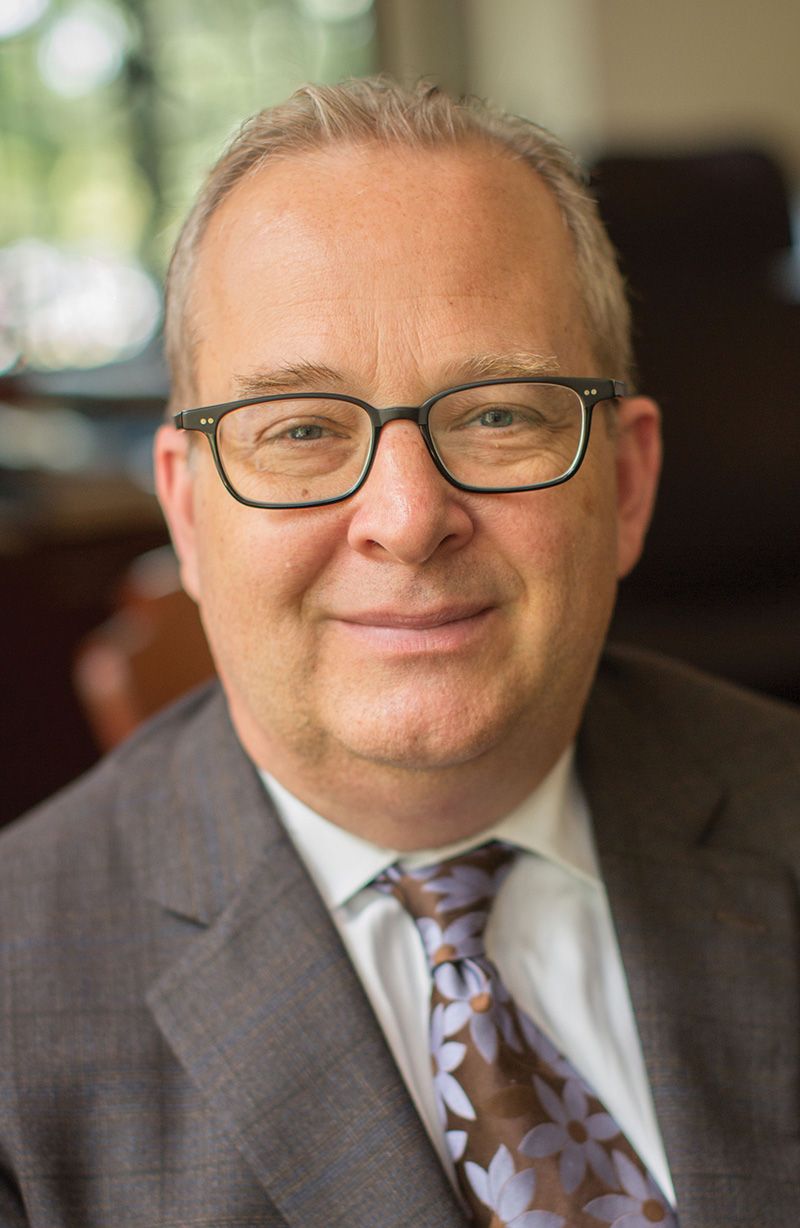Now in full swing, GO: The Campaign for Lehigh will provide new resources to greatly enhance our strategic growth, particularly around interdisciplinary research excellence and a rich experiential learning environment for our students.
Academia is on the cusp of change in how we shape research and educational programs, and these efforts place Lehigh in the vanguard of institutions leading the way; in many respects, it’s all about convergence.
The National Science Foundation (NSF) defines convergence research as “research driven by a specific and compelling problem” that involves “deep integration across disciplines.” At Lehigh, we live convergence, from our integrated undergraduate programs to our Interdisciplinary Research Institutes and everywhere in between.
This issue of Resolve highlights key initiatives that embody the concept. To solve complex research problems, we are focusing on societal needs and integrating knowledge, methods, and expertise from a breadth of disciplines to catalyze scientific discovery and technological innovation. Our students experience these challenges head on through their immersion in the resulting impact-driven ecosystem.
Lehigh’s Institute for Cyber Physical Infrastructure and Energy (I-CPIE), one of the university’s inaugural Interdisciplinary Research Institutes, is featured here. Launched last year and supported in part by GO: The Campaign for Lehigh, these Institutes exemplify Lehigh’s approach to, in essence, crashing through intellectual boundaries in pursuit of real, lasting impact.
From smart infrastructure to energy system cybersecurity to Internet of Things connectivity, the topics I-CPIE researchers pursue exist at the intersection of the human condition and the built environment. As never before, I-CPIE brings together experts from the social sciences and humanities to business and economics to partner with engineers and scientists. Together, they address issues that will guide how people interact with the communities in which they live, work, and play.
Sometimes, real, lasting impact comes about in mysterious ways. As a side effect of their study of the formation of organs, Lehigh researchers identified a completely new geometric shape: the scutoid. Beyond the scholarly publication of this important discovery, the Internet erupted in glee, producing memes, hashtags, T-shirts, poems, and even late-night TV comedy from Stephen Colbert and Seth Meyers.
But the real significance of this work has yet to be felt, as researchers around the world from a spectrum of disciplines are now realizing that the scutoid has been hiding in plain sight, from soap bubbles to the markings on a giraffe to epithelial cells, since long before Euclid published The Elements. Only time will tell what kind of convergence research will be spawned from this discovery.
The refocusing of our interdisciplinary capstone design program reflects convergence infused into student learning. The evolution of our renowned Integrated Product Development (IPD) program will support capstone projects initiated through industry partnerships and driven by students’ own ingenuity and entrepreneurial passion.
Generations of Lehigh engineers have engaged in the IPD program, and found themselves quickly ushered out of their comfort zones and challenged to dig deep. Now, we are working to include an even more diverse range of engineering students, along with their peers from design, business, and other majors.
The objective for this new, improved IPD is to add even more dimension to the projects and teams converging around vexing, open-ended problems―the very heart of experiential learning.
Speaking of experiential learning, we are in the formative stages of a transformational plan to recreate Packard Lab as the heart of experiential learning on the Asa Packer campus, in many ways returning it to its historical roots while re-envisioning the venerable building as an ultramodern engineering headquarters.
These are exciting times for Lehigh and for the Rossin College! Thank you as always for your support and engagement. Please feel free to drop me a line with your thoughts and comments.

Stephen P. DeWeerth, Professor and Dean
P.C. Rossin College of Engineering and Applied Science
steve.deweerth@lehigh.edu

